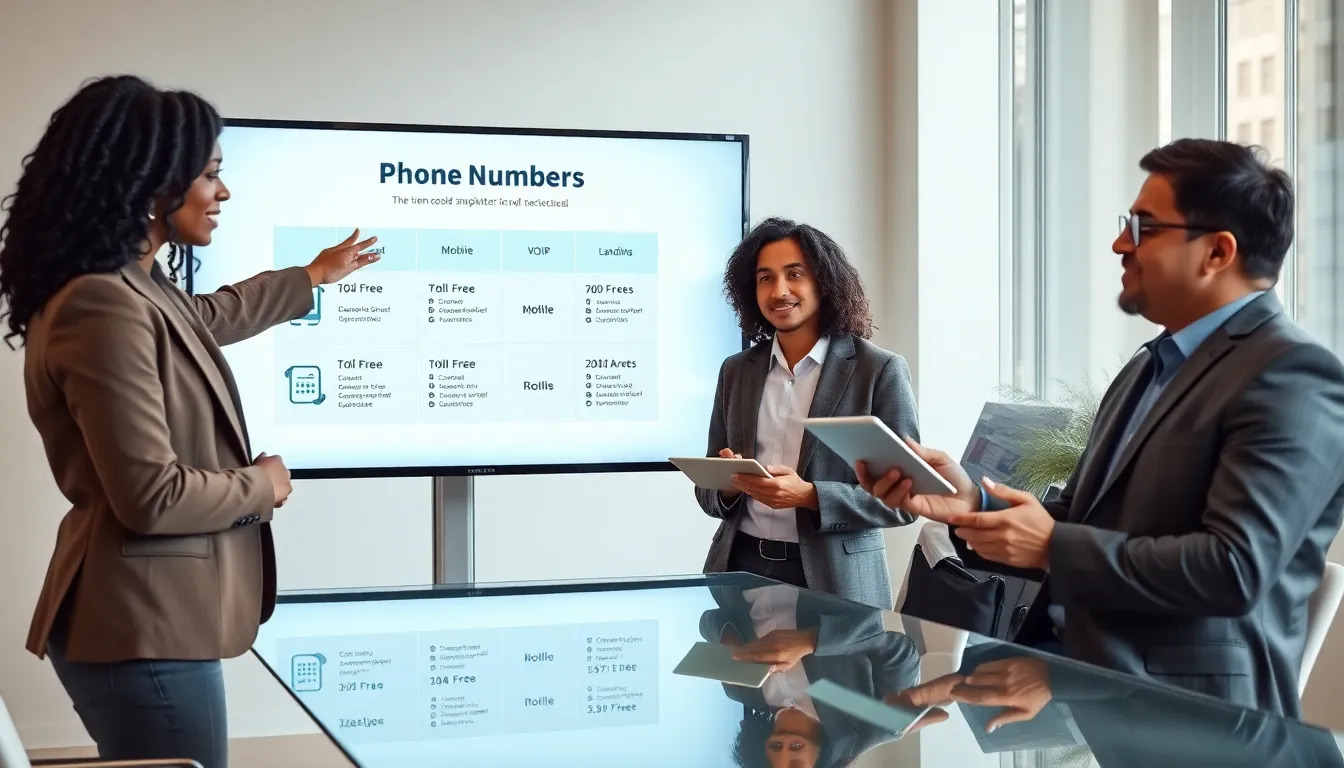Ever received a phone call from a number that left you scratching your head? Well, 9097290670 might just be one of those numbers. Contrary to what some might think, this is not just another random string of digits: it holds significance that many may overlook. Let’s jump into the intriguing world of phone numbers, unravel some myths, and discover why understanding the structures behind them can save you from countless headaches.
Table of Contents
ToggleUnderstanding the Significance of Phone Numbers

Phone numbers are not merely tools for connecting people. They represent a structured system created to help communication. The world of telephony intertwines technology, geography, and even history.
Types of Phone Numbers and Their Uses
Phone numbers fall into multiple categories: mobile, landline, toll-free, and VoIP. Each type serves unique needs. Mobile numbers are the most common, allowing for on-the-go communication. Landlines, akin to a steadfast friend, are less common these days, yet they provide stable service. Toll-free numbers attract businesses and offer customers a zero-cost way to reach support or services. Finally, VoIP numbers revolutionize how we think about communication, providing flexibility through the internet.
How Phone Numbers Are Structured
Understanding how phone numbers are structured gives valuable insights. A typical phone number consists of several parts: the country code, area code, and the subscriber number. For example, in a ten-digit number, the first three digits denote the area code, which tells you where the call is coming from. Digging deeper reveals even more about demographics.
It’s fascinating how arrangement creates regional identity. Numbers can provide clues about a person’s location, especially if they are unfamiliar with the area code. The more one understands about these structures, the easier it becomes to decipher the complexities of communication.
The Importance of Area Codes
Area codes are the unsung heroes of phone numbers. They serve a critical function, establishing the geographical relationship of the number to the area.
Common Myths About Phone Numbers
Many myths surround area codes. For instance, some believe that the first digit indicates the quality or reliability of the service. That couldn’t be farther from the truth. It’s merely part of a historical numbering plan. Another common misconception is that specific area codes guarantee certain attributes, like socio-economic status. The truth is that area codes are more about where a call is routed than the person making the call.
Privacy Concerns Related to Phone Numbers
In an age where information spreads faster than a viral TikTok dance, privacy concerns loom large. People often worry about their phone numbers falling into the wrong hands. Scammers love to exploit this, targeting individuals with unsolicited calls or messages. Remember that protecting your phone number can help maintain your privacy. Consider using call blocking features or apps to manage unwanted calls and ensure your safety.
Practical Uses of 9097290670
The number 9097290670 itself showcases how importance lies in personal experience and contextual relevance. Not every number is just a number: some play unique roles in everyday interactions.
How to Trace a Phone Number
Curious about an unknown caller? Tracing a phone number can be simpler than one thinks. Websites and apps designed for number lookups can reveal information about the caller’s location, and sometimes, even their identity. This functionality can help avoid the gambit of unpleasant surprises. Everyone enjoys answering a call without worrying if they’re about to be spammed.
Identifying Spam or Scam Calls
Scam calls are rampant these days, and knowing how to identify them can safeguard against potential threats. These calls often carry specific characteristics: odd area codes, aggressive sales tactics, or generic messages. Awareness is key. Tools such as caller ID apps can help flag suspicious numbers, such as 9097290670 if it ever raises any flags. Know who’s calling before you answer: it could save you from a marketing pitch or a scam.




